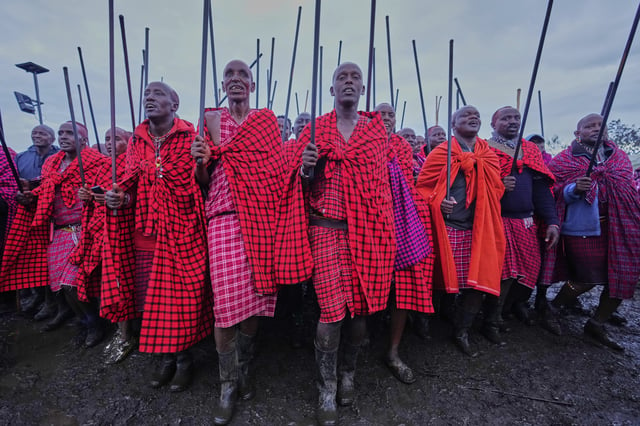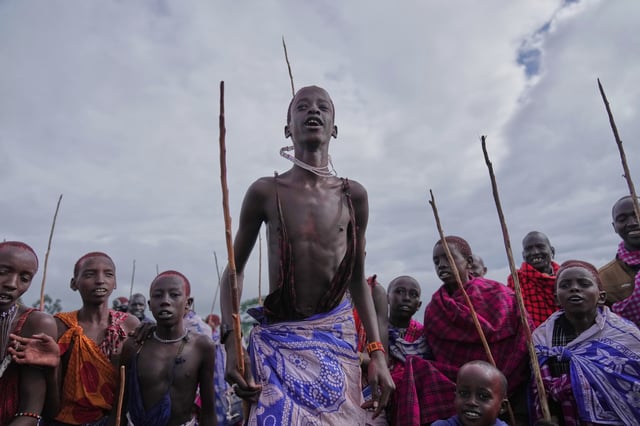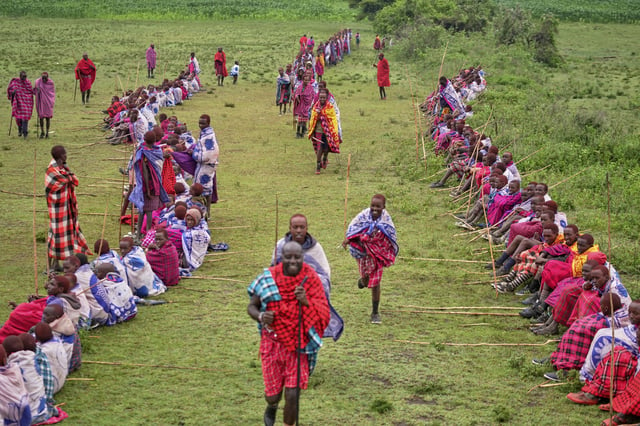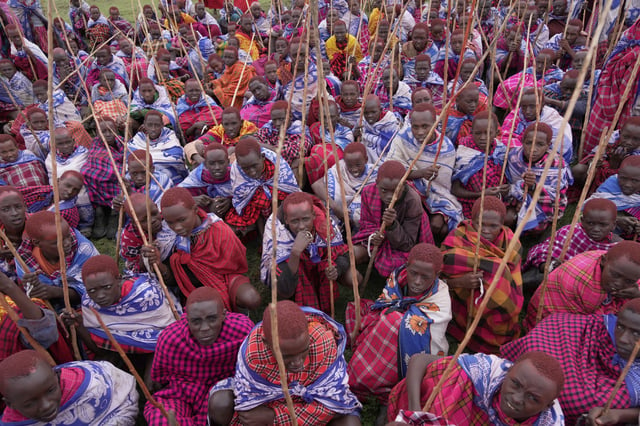Overview
- The Enkipaata ceremony, a Maasai male rite of passage, has been modernized into a one-month program aligned with school holidays, replacing the traditional year-long training.
- This year’s cohort of 900 teenage boys from Kenya and Tanzania completed the ceremony in Narok County, Kenya, marking their transition to moran (warrior) status.
- Key updates include non-lethal practices, symbolic tree planting, and a focus on leadership skills to address challenges like climate change and shrinking grazing lands.
- The ceremony fosters community unity through shared rituals, such as meat-sharing and the blessing of trees, emphasizing brotherhood and cultural continuity.
- UNESCO's recognition of Enkipaata as an Intangible Cultural Heritage has played a pivotal role in preserving and adapting the tradition for future generations.



